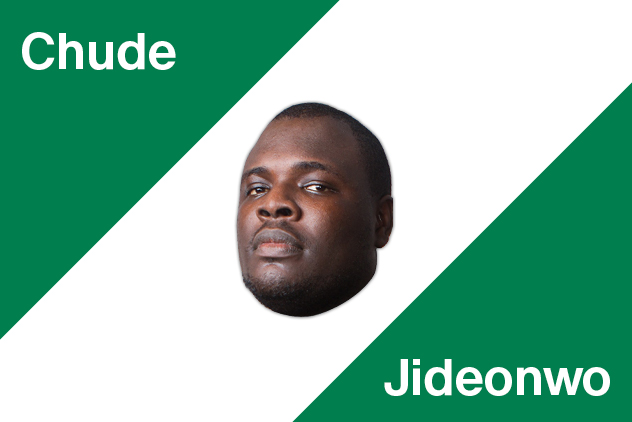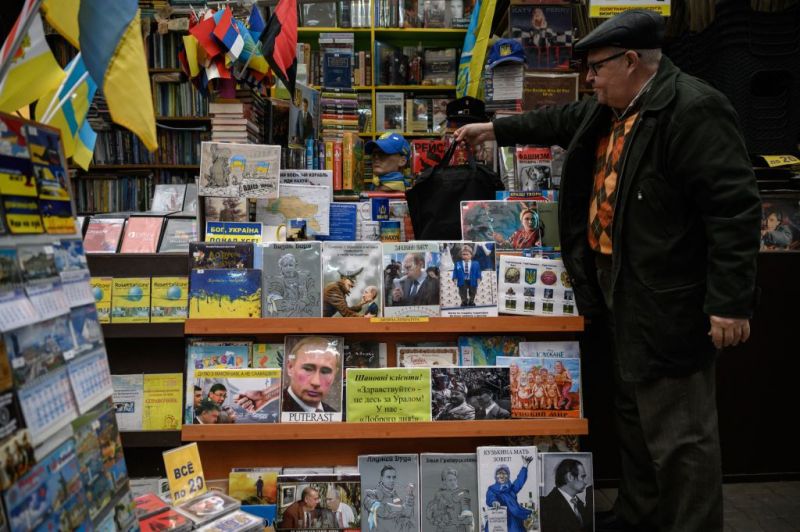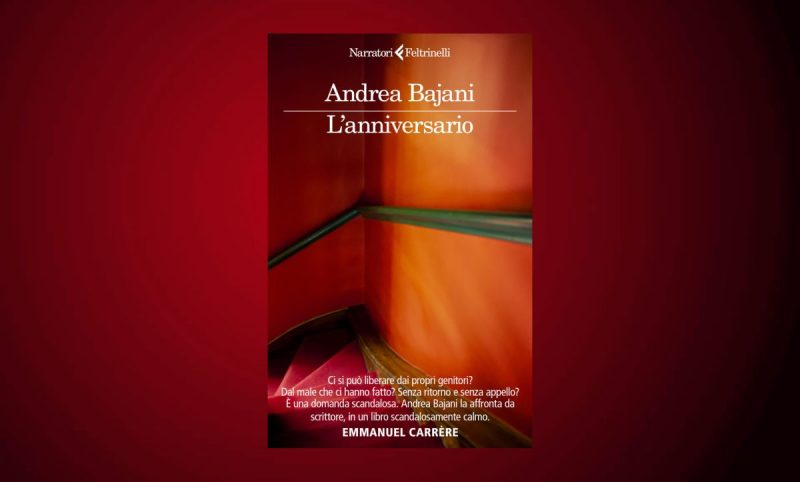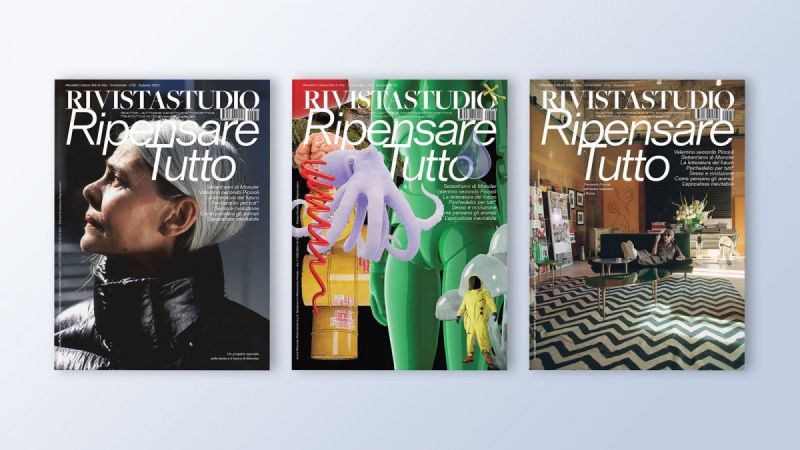Feltrinelli torna alla vittoria 20 anni dopo l'ultima volta.
The Future Project
Chude Jideonwo is Nigeria's poster boy, just when Nigeria is the poster boy of Africa's rise. From our cover story.

(Italian version here)
This story began when a nineteen-year old kid turned on the TV. It was an afternoon like any other in 2004, when Chude Jideonwo was zapping through channels in company of a couple of friends and realized that national TV broadcast included only negative news: tales of poverty, of tribal and religious conflicts, of forced emigration and sexual exploitation.
For sure, Nigeria, his country, was going through a difficult time: its first democratic elections after a decade of military rule were just a year old; Lagos, the financial capital, was the stage of clashes between Christians and Muslims; violence was an everyday affair in critical areas of the country, such as the Niger Delta and the Cameroon border. Everyone able to leave the country did so. Of course, like everyone else, Chude was worried too, but he felt something inside whispering him that this was not the whole story, that Nigeria was something else too. Above all, he believed that change was in the air: “Something was happening among the youth of the entire continent,” he explained in a Skype conversation with Studio. “Or at least that’s what it seemed to us.”
Thus, together with his friend Adebola Williams (their ages together did not add up to forty), Chude contacted the local media and proposed an idea: assigning an annual award to a youth who embodied the best side of Nigeria: “We needed something to inspire people.” Since that day, the Future Project has been assigned every year to benefit the most diverse categories – from high-tech entrepreneurs, to political activists, to pop music personalities – with the support of the the World Bank and international companies such as Shell and Unilever. Other projects followed: in 2011 Chude launched Red Media, a group which manages, among other things, a television station, a radio station, an information center and a magazine, providing content and consulting services to third parties. As a young entrepreneur, he is a strong opponent of the anti-modern elements that are still heavily present in the country. He has been featured on CNN and the Huffington Post, while Forbes listed him in its 30 under 30: Africa’s Best Young Enterpreneurs.
Time proved him right. In the last decade, many events took place in Nigeria. Between 2005 and 2013 the average annual growth of real GDP has been approximately 6.8 percent, according to the Central Bank of the country, and a growth of 7.8 percent is expected for 2014. With almost 170 million people and the largest oil fields in the continent, Nigeria is “an investment magnet,” as defined in 2012 by the Business Week. While the interest of oil companies (Mobil, Chevron, Eni, just to mention a few) is obvious, the list of investors in Nigeria includes less expected names too, such as Microsoft, Apple, Google, and Intel.
It is not just Nigeria. It is not just a matter of economy either.
Africa has changed. Above all, the perception of the African continent we have in the West has changed. No longerHeart of Darkness, no longer a place to depict only through the reporting of wars, pandemics, photos of starving children – a representation that, by the way, many Africans perceived as biased and even racist, even when it came from well-intentioned parties, NGOs included. Nowadays Africa is a land of new opportunities, albeit full of contradictions, a land of ideas and creativity. Back in 2000, The Economist ran a cover story titled “Africa. The Hopeless Continent.” In 2013, the same magazine published a special report where Africa was labelled as “a hopeful continent” and Nigeria was highlighted as one of the emerging economies to keep an eye on.
Nigeria is the poster boy of this “Africa’s rise” – or perception of thereof, for the issue is complex. The last decade was characterized not only by a steady economic growth, but also by a democratization process. In addition to the old good business areas that usually dominate the economies of developing countries rich in hydrocarbons – such as energy, construction industry, banks – new businesses are sprouting. Connected with the expansion of the middle class and with youth consumption, these companies work with telecommunications, technology, e-commerce (in the following pages we are featuring an interview to Tunde Kehinde, founder of Jumia, Africa’s rough equivalent of Amazon).
The showbiz has literally exploded here: way too forgettable until the late 1990s, these days “Nollywood” is the second biggest film industry after the Indian Bollywood. Nigerians ousted Hollywood in 2009. “When I was in high school the very idea of Nigerian pop culture was barely unknown,” says Chude, “If you wanted to listen to something decent, you opted for American music: now the Nigerian hip hop it’s the in thing.” The literary world too has blossomed, one only need think of Teju Cole (Open City was first published by Random House in 2011 and was distributed in Italy by Einaudi in 2013), or of Uzoamaka Maduka, founder of The American Reader (you will find her interview in the following pages).
All true. All to be taken with a grain of salt as well. Indeed, “Africa rising is becoming a cliché,” writes Chude on theHuffington Post.
Once it was cool to “Save Africa” – a quite annoying rhetoric that bore a risk of flattening too. “Stop trying to ‘Save’ Africa!” wrote another under-35 Nigerian, the writer Uzodinma Iweala, in a 2007 Washington Post op-ed, as David Bowie and Heidi Klum appeared in an ad campaign for “African children.” Which children? Which African countries? “Such campaigns, however well intentioned, promote the stereotype of Africa as a black hole of disease and death,” wrote the young author.
These days we run the opposite risk. The “Africa rising” rhetoric – which mirrors the lack of depth of the “Save Africa” approach – “can obscure a certain reality,” warns Chude.
Talking about Nigeria in particular, the first of the “certain realities” risking to fall through the cracks is Boko Haram, the Islamist terrorist group that killed more than a thousand people only in the second half of 2013. They target mainly Christians (not exactly a minority in Nigeria, accounting for half of the population). The name, which means “Western education is forbidden,” is a telltale sign of the diffusion of the opposition to the diffusion of modernization in the country. Then comes the problem of infrastructures, or better of non-existing infrastructures, such as a power distribution network able to work 24/7. Then comes social inequality: rich are richer, poor are dirt-poorer, and there’s a troubled middle class spending more than ever, even if we don’t know if they’re richer or just living large, says Chude.
Last but not least, a corrupt government. In truth, more and more people are rebelling against it: Nigeria has been the only country with its own Occupy movement so far: “We happened to be the ones spending the most time on Twitter,” says Chude, who played a leading role during the organization of Occupy Nigeria. You would say him it is odd, for aForbes-listed entrepreneur. Not so odd, he would retort, as Occupy Nigeria is one of a kind, pro-market and pro-capitalism movement. “It all started after the cut to fuel subsidies,” says Chude (Nigeria exports oil but there is no refinery in the country, hence the relatively high price of fuel). “Actually, we do not blame the cuts on their own: the thing is we do not know what the government is going to do with the resulting savings, given the opacity of its behavior,” he adds. “They say: it’s the market. I say: it’s ok to me, but start acting as a real democracy, with free market and free enterprises.”
Still, with all the doubts on the “Africa rising” clichés, and in spite of its second career as indignado, Chude says there is something true when they say it is time for Nigeria now. “Something is beginning to work these days,” he says. It is a combination of several elements: “We’ve had 13 years of uninterrupted democracy so far, and people are starting to enjoy it in the end, as it’s supposed to be when you live in a democracy.” High prices of fuel contributed to a GDP growth, but Chude highlights that hi-tech industry played a leading role too: “There’s a global focus on technology and Nigeria, with its trusty mood and large population, is simply the ideal place to test new ideas for the African market.”
People are beginning to come back home – from London, Paris, Zurich, New York. “When I was a kid, everyone wanted to leave, we all felt as we lived in a chaos, while nowadays returnées are a lively community, a phenomenon everyone is talking about.” On movebacktonigeria.com it is possible to read some of their stories. Such as the one of Ugo Iromantu, who had completed a Masters Degree at the London School of Economics and an MBA at Insead, France, worked at Citigroup and then decided to move back to Nigeria, because “the time is just right for people with good ideas to turn them into successful businesses.” He says he does not miss European cities very much, because in the meantime “Lagos is quickly becoming very cosmopolitan, so sometimes it doesn’t quite feel like you are back.”
Chude, for his part, does not trust in people saying everything is ok. He knows that Nigeria is full of problems, that this golden age is inconsistent in itself and risks to fade away too fast to leave a significant print. “For sure I can say that, for the first time here, we feel we’ve found a direction. And it’s great.”
Translated by Marion Sarah Tuggey
From Studio #18
Come funziona Jigsaw, la divisione (poco conosciuta) di Google che sta cercando di mettere la potenza di calcolo digitale del motore di ricerca al servizio della democrazia, contro disinformazione, manipolazioni elettorali, radicalizzazioni e abusi.

Reportage dalla "capitale del sud" dell'Ucraina, città in cui la guerra ha imposto un dibattito difficile e conflittuale sul passato del Paese, tra il desiderio di liberarsi dai segni dell'imperialismo russo e la paura di abbandonare così una parte della propria storia.



